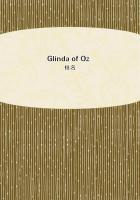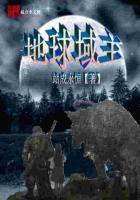Father Le Jeune, S.J., went first among the Algonkins, a missionary pioneer, in 1633, and suffered unspeakable things in his courageous endeavour to win souls in a most recalcitrant flock. He writes (1633): "As this savage has given me occasion to speak of their god, I will remark that it is a great error to think that the savages have no knowledge of any deity. I was surprised to hear this in France. I do not know their secrets, but, from the little which I am about to tell, it will be seen that they have such knowledge.
"They say that one exists whom they call Atahocan, who made the whole. Speaking of God in a wigwam one day, they asked me 'what is God?' I told them that it was He who made all things, Heaven and Earth. They then began to cry out to each other, 'Atahocan!
Atahocan! it is Atahocan!'"
There could be no better evidence that Atahocan was NOT (as is often said) "borrowed from the Jesuits". The Jesuits had only just arrived.
Later (1634) Le Jeune interrogated an old man and a partly Europeanised sorcerer. They replied that nothing was certain; that Atahocan was only spoken of as "of a thing so remote," that assurance was impossible. "In fact, their word Nitatohokan means, 'I fable, I tell an old story'."Thus Atahocan, though at once recognised as identical with the Creator of the missionary, was so far from being the latest thing in religious evolution that he had passed into a proverb for the ancient and the fabulous. This, of course, is inconsistent with RECENT borrowing. He was neglected for Khichikouai, spirits which inspire seers, and are of some practical use, receiving rewards in offerings of grease, says Le Jeune.
The obsolescent Atahocan seems to have had no moral activity. But, in America, this indolence of God is not universal. Mr. Parkman indeed writes: "In the primitive Indian's conception of a God, the idea of moral good has no part". But this is definitely contradicted by Heriot, Strachey, Winslow, already cited, and by Pere Le Jeune. The good attributes of Kiehtan and Ahone were not borrowed from Christianity, were matter of Indian belief before the English arrived. Mr. Parkman writes: "The moment the Indians began to contemplate the object of his faith, and sought to clothe it with attributes, it became finite, and commonly ridiculous". It did so, as usual, in MYTHOLOGY, but not in RELIGION. There is nothing ridiculous in what is known of Ahone and Kiehtan. If they had a mythology, and if we knew the myths, doubtless they would be ridiculous enough. The savage mind, turned from belief and awe into the spinning of yarns, instantly yields to humorous fancy. As we know, mediaeval popular Christianity, in imagery, marchen or tales, and art, copiously illustrates the same mental phenomenon.
Saints, God, our Lord, and the Virgin, all play ludicrous and immoral parts in Christian folk-tales. This is Mythology, and here is, beyond all cavil, a late corruption of Religion. Here, where we know the history of a creed, Religion is early, and these myths are late. Other examples of American divine ideas might be given, such as the extraordinary hymns in which the Zunis address the Eternal, Ahonawilona. But as the Zuni religion has only been studied in recent years, the hymns would be dismissed as "borrowed," though there is nothing Catholic or Christian about them. We have preferred to select examples where borrowing from Christianity is out of the question. The current anthropological theory is thus confronted with American examples of ideas of the divine which cannot have been borrowed, while, if the gods are said to have been evolved out of ghosts, we reply that, in some cases, they receive no sacrifice, sacrifice being usually a note of ghostly descent. Again, similar gods, as we show, exist where ghosts of chiefs are not worshipped, and as far as evidence goes never were worshipped, because there is no evidence of the existence at any time of such chiefs. The American highest gods may then be equally free from the taint of ghostly descent.
There is another more or less moral North American deity whose evolution is rather questionable. Pere Brebeuf (1636), speaking of the Hurons, says that "they have recourse to Heaven in almost all their necessities, . . . and I may say that it is, in fact, God whom they blindly adore, for they imagine that there is an Oki, that is, a demon, in heaven, who regulates the seasons, bridles the winds and the waves of the sea, and helps them in every need. They dread his wrath, and appeal to him as witness to the inviolability of their faith, when they make a promise or treaty of peace with enemies. 'Heaven hear us to-day' is their form of adjuration."
A spiritual being, whose home is heaven, who rides on the winds, whose wrath is dreaded, who sanctions the oath, is only called "a demon" by the prejudice of the worthy father who, at the same time, admits that the savages have a conception of God--and that God, so conceived, is this demon!















